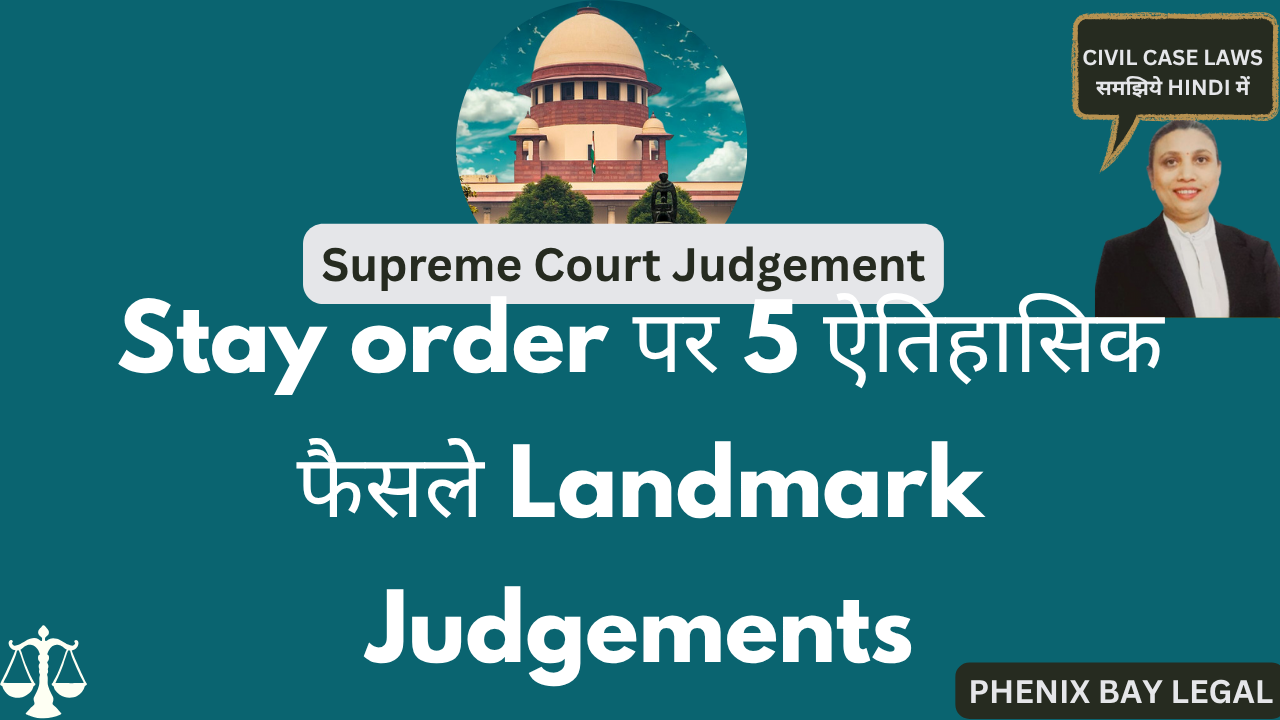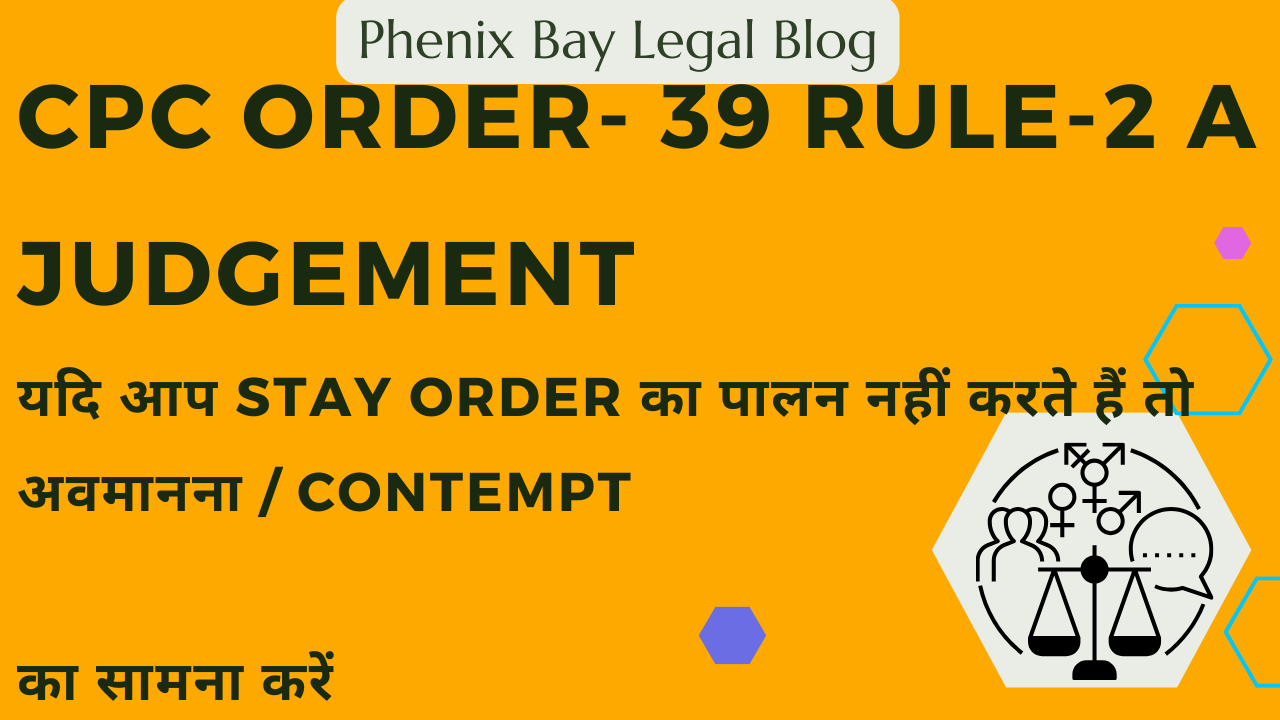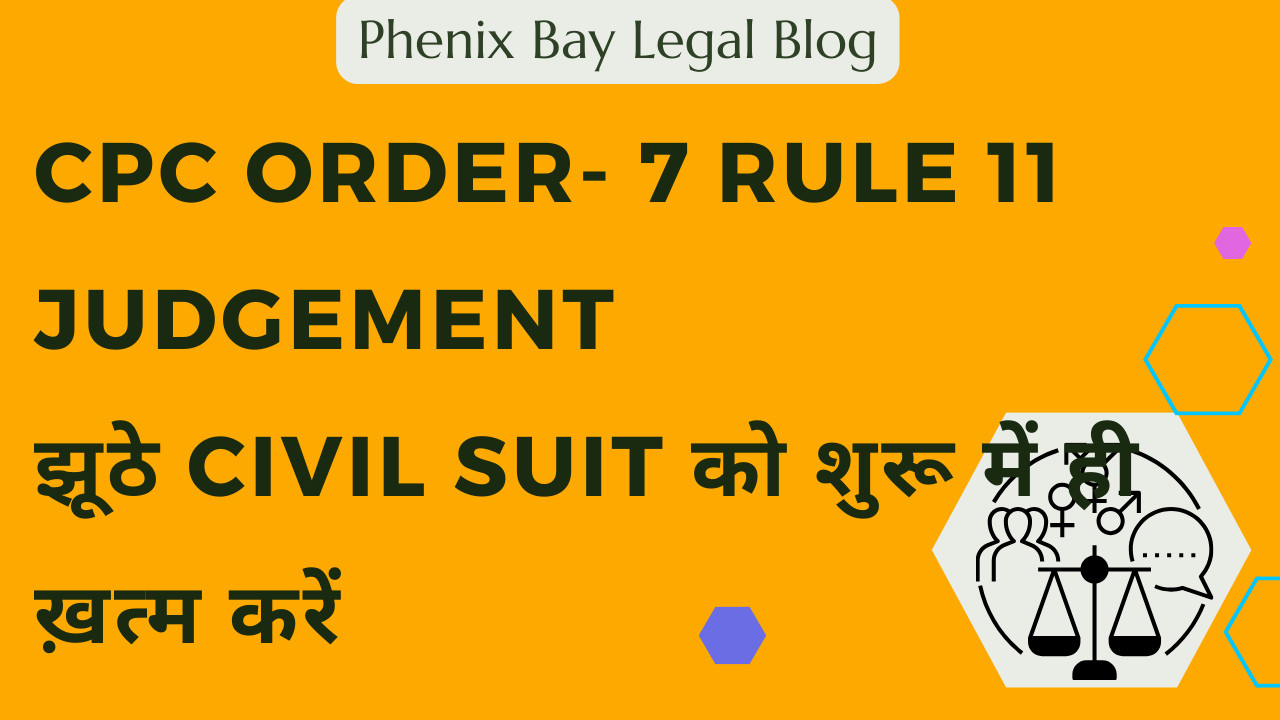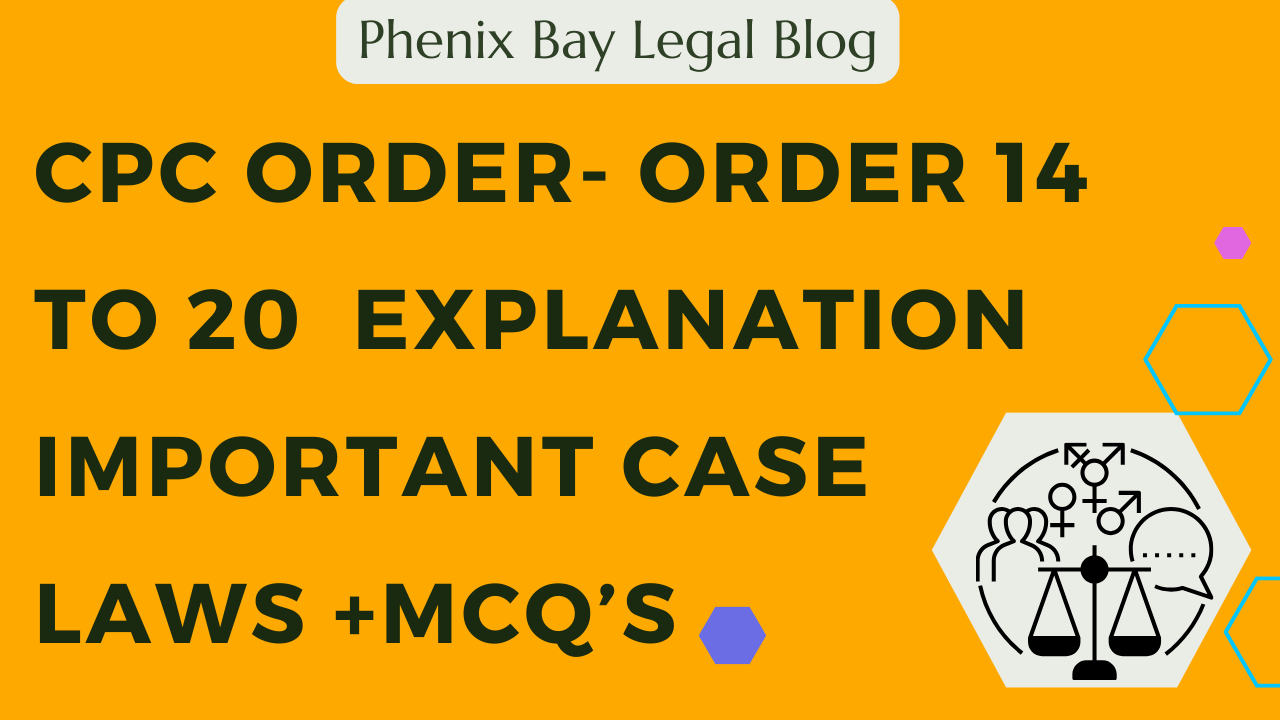
Understanding Section 156(3) of the Code of Criminal Procedure (CrPC):
The process of investigating a crime is a significant aspect regulated by the Code of Criminal Procedure, 1973 ("CrPC").
Understanding Section 156(3) of the Code of Criminal Procedure (CrPC):
- Introduction
- Understanding Section 156(3) of the Code of Criminal Procedure (CrPC):
- Legal Background and Meaning:
- Application and How to Use It
- Where to Use It and Relevant Scenarios:
- Things to Keep in Mind and Considerations
- In case Application gets Dismissed
- Key Court Decisions on Section 156 of CrPC
- Conclusion
Introduction
The process of investigating a crime is a significant aspect regulated by the Code of Criminal Procedure, 1973 ("CrPC"). Section 2(h) of the CrPC defines investigation as any formal procedure carried out by a police officer or an individual authorized by a Magistrate (excluding the Magistrate herself) to collect evidence pertinent to the crime. The authority to conduct investigations is granted under specific circumstances: upon receipt of information concerning the commission of a cognizable offense, upon reasonable suspicion of a person's involvement in such an offense, or upon the directive of a Judicial Magistrate.Under the provisions of the CrPC, police officers tasked with investigating cognizable offenses are vested with certain powers. Section 156 of the CrPC delineates the authority bestowed upon police officers conducting such investigations. This discourse elucidates the fundamental aspects and extent of application of Section 156 of the CrPC.
Understanding Section 156(3) of the Code of Criminal Procedure (CrPC):
“156 - Police officer‘s power to investigate cognizable case.
(3) Any Magistrate empowered under section 190 may order such an investigation as above-mentioned.”
Legal Provision: Section 156(3) of the Code of Criminal Procedure (CrPC) is a statutory provision that grants authority to a Magistrate to order a police investigation into a cognizable offense. The ambit of Section 156 of the Code of Criminal Procedure (CrPC) delineates the authority granted to the police for investigating criminal offenses, which is further augmented by provisions in Sections 154 and 156 of the Code. A fundamental disparity between these provisions lies in the initiation of investigations: Section 154 necessitates the police to commence investigations solely upon receiving information, whereas Section 156 empowers them to initiate investigations autonomously or upon recognizing a potential offense. However, the application of Section 156 is circumscribed to instances where police powers are executed within the confines of established legal procedures. This legal interpretation finds validation in the judicial pronouncement of the Apex Court in the case of Kishor Kumar Lal v. State of Bihar (1990): This case involved a challenge to the arrest of a person without following proper procedures. The Supreme Court reiterated that Magistrates have the authority to ensure police investigations are conducted legally and can release individuals arrested unlawfully.Furthermore, investigations conducted under Section 156 are distinct from those under Section 202 of the Code. The purview of Section 202 is limited to aiding the Magistrate in determining whether adequate grounds exist to warrant further action. Conversely, Section 156 confers unrestrained authority upon the police to conduct investigations without the necessity of adhering to the formalities of lodging a First Information Report (FIR). A detailed examination elucidating the contrast between these provisions is expounded upon later in this discourse.
Legal Background and Meaning:
Legal Provision: Section 156(3) of the CrPC is part of the procedural law governing the conduct of criminal proceedings in India. It is intended to ensure that proper investigations are conducted into cognizable offenses to uphold the rule of law and protect the rights of victims and accused persons.The provision empowers a Magistrate, upon being approached by an aggrieved person or upon their own initiative, to direct the police to investigate a cognizable offense. A cognizable offense is one in which the police can arrest without a warrant and initiate an investigation without the need for a court order.
Application & How to Use It:
When to Use: Section 156(3) CrPC can be invoked in situations where an individual or complainant seeks police intervention to investigate a cognizable offense, but the police have either refused to register an FIR (First Information Report) or have failed to take appropriate action on the complaint. Under Section 156 of the Code of Criminal Procedure (CrPC), a judicial magistrate is vested with the authority to instruct the police to undertake an investigation if the police have failed to do so adequately. This prerogative is exclusively accorded to a Judicial Magistrate who possesses the jurisdiction to take cognizance of the offense in accordance with Section 190 of the CrPC. The Magistrate is empowered to issue such directives under Section 156(3) prior to initiating cognizance proceedings as outlined in Sections 190, 200, and 204. Consequently, the Magistrate's jurisdiction is constrained to the pre-cognizance phase. However, if the Magistrate scrutinizes a complaint submitted under Section 200 and instructs the police to conduct an investigation, such an action cannot be construed under Section 156(3) as the Magistrate is deemed to have taken cognizance of the complaint.
Additionally, in instances where the police decline to initiate an investigation pursuant to Section 157 of the Code, which delineates the procedure for conducting investigations, Section 159 empowers the Magistrate to mandate the police to undertake the investigation. It is crucial to emphasize that when the Magistrate exercises authority under Section 156(3) to direct police investigation, it does not amount to the Magistrate having taken cognizance of the alleged offense. Furthermore, irrespective of the Magistrate's directives, the police are obligated to register the case.
Procedure: To utilize this provision, the aggrieved person or complainant can approach the Magistrate with a written application requesting the initiation of a police investigation. The application should contain sufficient grounds or evidence to justify the need for police intervention.
FORMAT OF 156(3)Format of 156(3) crpc
Jurisdiction and Relevant Scenarios:
Applicability: Section 156(3) CrPC is applicable across India and can be invoked before any Magistrate having jurisdiction over the area where the offense is alleged to have occurred. Under what circumstances does Section 156(3) of the CrPC come into effect? This section empowers a Magistrate to instruct the police to investigate a cognizable offense. However, it stipulates that the Magistrate must possess the authority to take cognizance under Section 190 of the Code to issue such a directive. If the Magistrate lacks the jurisdiction to take cognizance of the matter, any order for investigation would be deemed invalid.
Scenarios: It is relevant in situations where there is evidence or suspicion of the commission of a cognizable offense, and the intervention of law enforcement is necessary to gather evidence, apprehend suspects, or prevent further harm or injustice. Examples include cases of assault, theft, fraud, or any other offense punishable under the Indian Penal Code or other relevant laws.
Things to Keep in Mind and Considerations:
Grounds for Invocation: When invoking Section 156(3) CrPC, it is essential to provide the Magistrate with sufficient grounds or evidence to justify the need for police intervention. This may include witness statements, documentary evidence, or any other relevant information supporting the complaint. When is it appropriate to submit an application under Section 156 to the Magistrate? It's crucial to understand that such an application can only be pursued after all avenues under Section 154 have been exhausted. In simpler terms, the individual should approach the Magistrate only if the Station House Officer declines to register the FIR. In such circumstances, it's advisable to first bring this matter to the attention of the Superintendent of Police. If despite these efforts the FIR is still not registered, the individual may then turn to Section 156 to file an application before the Magistrate.
Procedural Compliance: It is important to ensure compliance with procedural requirements and legal principles when seeking the intervention of the Magistrate under Section 156(3) CrPC. This includes following the prescribed format for the application, adhering to court procedures, and respecting the rights of all parties involved in the legal process.
In case the Application is dismissed
In the event that a Magistrate declines an application under Section 156, what legal recourse is available to the applicant? It rests within the discretion of the Magistrate to decide whether to initiate an investigation. Even if all elements of a cognizable offense are present, the Magistrate may exercise judgment in refraining from ordering an investigation if deemed appropriate. However, should an individual find dissatisfaction with such a decision, there exists the option to pursue a revision petition before the Court of Sessions. Additionally, in cases where the dismissal of the application is perceived to potentially result in a miscarriage of justice, the applicant may invoke the inherent jurisdiction of the High Court under Section 482 of the CrPC. It's worth noting, however, that these avenues of redress are typically reserved for exceptional circumstances.
Key Court Decisions on Section 156 of CrPC:
- Jaisingh Agrawal v. State of Chhattisgarh (2020): Chhattisgarh High Court affirmed Special Courts' authority to order police investigations under Section 156(3).
- Supreme Bhiwandi Wada Manor v. State of Maharashtra (2021): The Supreme Court clarified that Magistrates need not examine complaints on oath before directing police investigations under Section 156(3).https://indiankanoon.org/doc/77704402/
- Smt. Rajlakshmi Chaudhuri v. State of West Bengal (2021): Calcutta High Court ruled that delay in filing complaints can't be a reason to reject Section 156 applications without police investigation.https://indiankanoon.org/doc/84540952/
- Anjuri Kumari v. State (NCT of Delhi) (2023): Delhi High Court clarified the use of inherent jurisdiction under Section 482 after exhausting revisional jurisdictionhttps://indiankanoon.org/doc/132145350/.
- X v. Y (2023): Andhra Pradesh High Court upheld a Magistrate's direction for police investigation under Section 156(3), dismissing the need for reasons in the order.
- Ashok Gyanchand Vohra v. State of Maharashtra (2005): The Bombay High Court held that Special Courts under the Maharashtra Control of Organized Crime Act can order investigations under Section 156(3) CrPC.
- Laxmi Mukul Gupta @ Lipi v. State of Maharashtra (2018): Bombay High Court clarified that the Magistrate's discretion under Section 156(3) is limited to deciding if the case warrants police investigation.
- C. Kumaravel v. Director General of Police (2019): Madras High Court emphasized using Section 156(3) when police refuse to register an FIR, not Section 482 of CrPC.
Conclusion
In conclusion, Section 156 of CrPC grants both police and Magistrates the authority to investigate cognizable offenses, emphasizing the need for judicial oversight and adherence to legal procedures. Magistrates' powers are limited to the pre-cognizance stage, and they can't order investigations after taking cognizance of the offense.By understanding the legal background, procedure, and implications of Section 156(3) of the Code of Criminal Procedure (CrPC), individuals can effectively utilize this provision to seek police intervention in cases involving cognizable offenses.
Tags
General Legal Hashtags
- #PhenixBayLegal
- #LegalAdviceIndia
- #IndianLawUpdates
- #LegalServicesIndia
- #LegalBlogsIndia
Regional Hashtags (Geographical Coverage)
- #NorthIndiaLegalUpdates
- #SouthIndiaLegalAdvice
- #EastIndiaLawServices
- #WestIndiaLegalResources
- #NortheastIndiaLaw
City-Specific Hashtags
- #DelhiLegalServices
- #MumbaiLawUpdates
- #BangaloreLawAdvice
- #ChennaiLegalHelp
- #KolkataLegalConsultation
- #HyderabadLawyers
- #PuneLegalTips
- #AhmedabadLegalServices
- #LucknowLawConsultation
- #ChandigarhLegalAdvice
Broader Indian Legal System Hashtags
- #IndianLegalSystem
- #IndianCourtUpdates
- #LegalAwarenessIndia
- #LawInIndia
- #LegalRightsIndia
- #LawFirmIndia
- #LegalSupportIndia
- #LegalUpdatesIndia
- #LegalAwarenessCampaign
More >>

Jyoti Sharma vs. Vishnu Goyal & Anr. 2025 INSC 1099
This was a long running legal battle between a landlord and her tenants over a shop. The landlord, Jyoti Sharma, wanted her shop back for two main reasons: The tenants had stopped paying rent. She needed the shop to expand her family's business (her bonafide need).

Landmark Judgement on Injunction
In civil, commercial, or even family disputes. But when is a simple injunction suit enough? When do you need to add a declaration of title? And how do courts balance urgency vs evidence in interim relief?

Case Analysis: Stay Order Violation and Contempt of Court by Supreme Court of India
Giving an undertaking to the court is equivalent to an order of injunction—any violation invites contempt proceedings.Injunction orders remain valid until formally vacated by a court—violation before vacation can lead to punishment.

Order 7 Rule 11 of CPC Explanation in Land Mark Judgement
The Sopan Sukhdeo Sable judgment is a landmark ruling that reinforces Order 7 Rule 11 of CPC as a safeguard against frivolous and legally untenable claims. It highlights the importance of examining only the plaint’s contents to decide whether a suit should be dismissed at the threshold.

CPC Order- Order 14 to 20 Explanation IMPORTANT CASE LAWS +MCQ’S for Judiciary Exam Preparation
CPC Order- Order 14 to 20 Explanation IMPORTANT CASE LAWS +MCQ’S for Judiciary Exam Preparation

Supreme Court ImportanatJudgement - Landlord Tenant Bonafide need
This case involves a dispute over eviction of a tenant based on the bona fide need of the landlord. The Supreme Court ruled in favor of the landlord, reversing the High Court's decision. Below is a detailed breakdown of the judgment with relevant legal principles, precedents, and reasoning.